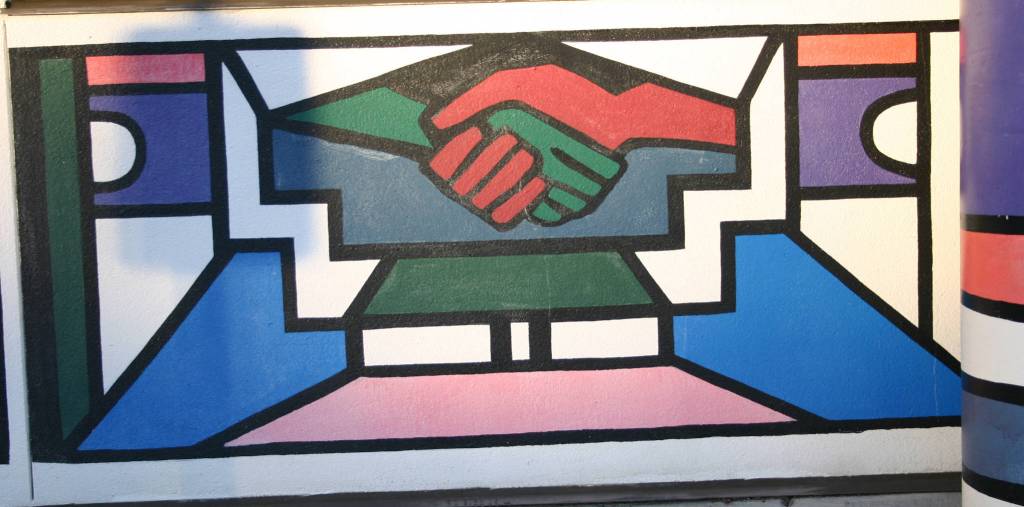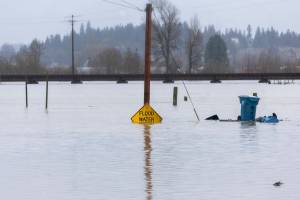A moment as equals
Published 5:30 am Tuesday, March 24, 2020
By Morf Morford
Tacoma Daily Index
We are all Americans now.
That was the headline across the world in the days following the attacks on the World Trade Center towers on 9/11. Bold headlines in almost every language dominated worldwide media with a clear message; we were not alone in our grief.
The United States basked in the glow of global good will for only a few days.
We paid a horrendous price for our worldwide camaraderie, and we, and the world, would never be the same.
American vulnerability was on display and our much cherished “exceptionalism” was challenged.
It didn’t last long of course. Some say that we squandered that good will as we bombed and invaded nations that had little, if anything, to do with our national pain. And we have been at war ever since.
Our moment as equals – equally besieged and equally vulnerable – on the world stage did not last long.
In a very different sense, we currently find ourselves alongside other nations in similar situations.
We, like so many other nations, seem to be at war – but, perhaps like every war in the heat of the moment, we seem above all to be in uncharted waters.
What was once valued, even sacred, strikes many of us now as trivial, irrelevant or insulting.
And what was once trivial, or at least something we all took for granted – like toilet paper, handshakes or casual conversations – is now the topic of everyday conversation, social media meme and broadcast news headline.
Virtually nothing in 2020, even in the first three months, is recognizable; work, family, faith, neighborhoods, personal mobility, even the role, authority and reliability of the government.
Every aspect of our lives has taken on a completely different hue in just the past few months, if not weeks.
We, or at least some of us, have taken (or have been forced to take) a good, long at our schedules, our budget and our priorities.
When was the last time you saw an act of courage, or compassion, sacrifice or generosity not on a screen, but in real life?
Our headlines and news shows seem to focus on the dire and the extreme. So much so, that when a truly menacing virus rolls into our view, many of us, from politicians to close relatives or neighbors don’t take it seriously.
Too many of us live in such “echo chambers” filled with people we already agree with that we don’t recognize or acknowledge any story that doesn’t fit our already established view of the world.
Which is the perfect medium for any “epidemic” literally viral or just the latest kooky – but believable-if-you-agree-with-it conspiracy theory.
Yes, we should wash our hands a bit more than we did a month ago, but we also need to trust, because we have reason to, that our local and not-so-local governments are prepared for disasters and challenges, even those that seem unlikely – like volcanoes, earthquakes or yes, viruses with no vaccine or previous contact.
We, at work, at home or at school can prepare for emergencies, but emergencies, by definition, strike us when we are not expecting them, or their format is not what we were expecting.
Our history of vaccines, after all, against smallpox, polio and mumps and many others has driven those diseases, or even the idea of serious disease, off of our line of vision.
But microbes are not stupid. Or idle. They are in fact infinitely innovative and they flex around our best defenses.
That means that our “best defenses” are always in motion, always adapting. And never finished.
Every epidemiologist knows this. Every microbiologist knows this. And you could make the argument that every mom knows this.
COVID-19 hits some harder than others.
In fact, it hits those over age 60 far harder, and for whatever reason, tends to be far more serious in men than in women.
This isn’t the first time older men have been the most susceptible to death and disease.
Throughout 2018 and 2019 a continuing news story was that we in the United States had an epidemic of what are called “deaths of despair” – suicides, drug overdoses and alcohol related violence.
These are deaths with the common theme, not of drugs or alcohol or even violence, but of giving up.
These were impacting all ages – but particularly those over age 50. And mostly white males.
Now, thanks to COVID-19, a whole new threat has emerged. There are still those who dismiss or even mock its presence or impacts, but we who experience it or know those who work in the medical fields know that this is no flu, no hoax and no distraction.
If you follow international news, you see that each nation has its own trajectory, its own identity, policies and priorities that will channel its journey through this unknown, unsettling, and for many frightening, new territory.
The way will not be easy for any of us. The rules will be different.
The way back to equality and opportunity, trust and national well-being, will be the challenge of a lifetime.
Ultimately it will be worth it, but the price we will pay will be immeasurable. Not all of us will see it, but there is no struggle more worth fighting for. And no struggle more worthy of us.
We are all Americans now – all of us aspiring and working together toward those simple, but never easy, principles of decency, equality, respect and fair opportunity.
Without them, we are lost.
Our struggle for them, like our struggle against malicious microbes, will never be over.
Whether we achieve them or not, keeping them in our sight will remind us, and everyone else, who we really are.





